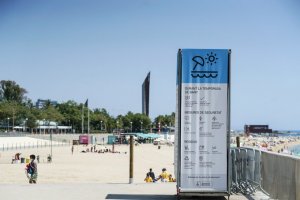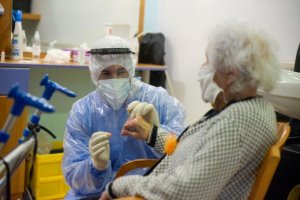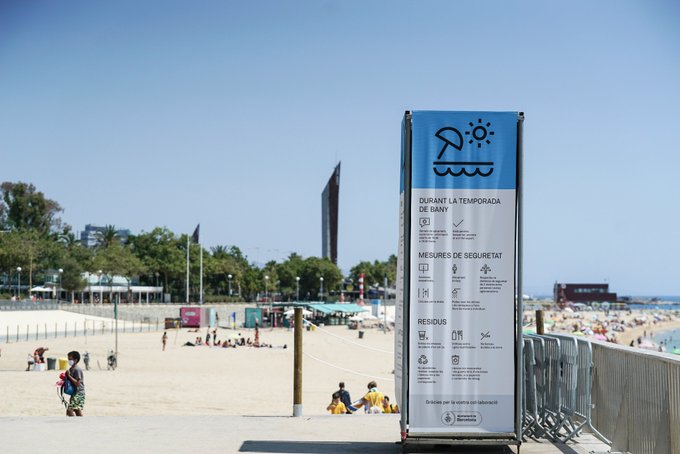Latest: Coronavirus in Spain figures (13 August)
Please support Spain in English with a donation
Click here to get your business activity or services listed on our DIRECTORY
Report below updated in Spain at 17h on Tuesday 21 July
CORONAVIRUS in SPAIN – latest Health Ministry figures
The latest official figure* released by the Spanish Health Ministry on Tuesday 21 July for the number of people who have tested positive for Coronavirus (Covid-19) is now 266,194. This is an overall increase of 1,358 against the figure released on Monday — yet with the ministry stating that 529 of these infections have occurred in the past 24 hours. The difference is because the ministry claims it is still verifying and updating historical data (please also see discrepancies in figures* below).
268 people have needed hospital treatment in the past 7 days, of which 13 have required intensive care.
Monday had shown an increase of 685 infections in 24 hours, according to Health Ministry data – but an overall increase of 4,581 over the figures released on Friday.
Friday had been 628 infections in 24 hours – but 1,400 over the figures released last Thursday.
Of the 529 new infections registered in the past 24 hours by the central Health Ministry in Spain, 187 are in Aragón (with 1,761 new cases there in the past 7 days), 82 in Navarra, 63 in Catalonia (with 3,961 new cases in past 7 days), 48 in Madrid, 42 in Andalusia, 31 in the Basque Country, 22 in the Valencia region, 15 in Castilla y León, and 11 in Extremadura.
The current peak of recorded infections for a 24-hour period in Spain was on 31 March, when 9,222 new cases were registered.
The Ministry of Health’s official figures* for Tuesday 21 July also now show that there have been a total of 28,424 Coronavirus-related deaths in Spain – an increase of 2 over Monday.
The current known peak of recorded deaths related to Coronavirus in a 24-hour period in Spain was on 2 April, when 950 deaths were registered.
A full breakdown in Spanish of the data per region, together with age group statistics can be found by clicking here.

Situation in Catalonia
Independently of the way that Spain’s Health Ministry presents its figures (above), the regional health department in Catalonia has released its own data on Tuesday showing that a further 287 new cases of Coronavirus have been registered there in the past 24 hours.
On Monday there had been 748 new cases of Coronavirus in Catalonia. Monday had seen 944 – and on Saturday the figure had been 1,226 new cases in 24 hours.
As reported on Sunday, in an attempt to curb the rising number of Covid-19 cases, the Catalan government has adopted new measures in various areas of Catalonia – including the city of Barcelona itself.
The Catalan government has also called on people living in these areas to avoid leaving home unless necessary, and to not travel to any second homes.
Click here for details: Coronavirus in Catalonia – update (19 July).
Also see the section ‘More restrictions in Catalonia’ in last Wednesday’s report: Coronavirus in Spain figures (15 July).
On Tuesday Barcelona City Council announced that the permitted capacity on the city’s beaches would reduce by 15% with immediate effect – ‘to increase safety and prevent contagion of Covid-19′ – with the maximum number of people allowed now set at 32,000 instead of 38,000.
It also said that the measure was being applied ‘in coordination with other metropolitan municipalities’.
⬇️🏖️ Reducció d'un 15% més de l'aforament a les #platgesBCN per augmentar la seguretat i prevenir contagis de la #covid19:
👥 L'ocupació màxima passa de 38.000 a 32.000 persones.
✅ La mesura s'aplica des d'avui i de manera coordinada amb la resta de municipis metropolitans. pic.twitter.com/lOcTHmUNuf— Ajuntament de BCN (@bcn_ajuntament) July 21, 2020
Spain has carried out more than 4m PCR tests since start of pandemic
The regional governments of Spain have notified the central Health Ministry that a total of 4,073,664 PCR diagnostic tests have been carried out up to 16 July.
Specifically, between 10-16 July, the regional governments increased their capacity to perform this type of diagnostic testing by 6% – according to Health Ministry statistics. Furthermore, the PCR rate to date has grown to stand at 86.49 tests per 1,000 inhabitants.

Together with the PCR diagnostic tests performed, the regional governments have also reported that a total of 2,057,370 rapid antibody tests have been performed, at a rate of 43.68 tests per 1,000 inhabitants, and a rise of 1% on the number the previous week.
189,802 antibody blood tests have been performed, at a rate of 4.03 per 1,000 inhabitants and a percentage increase of 27%.
In total, 6,320,836 diagnostic tests for Covid-19 have been performed since the start of the pandemic, of which 294,390 correspond to the week from 10-16 July.

Spain to receive €140 billion from EU Recovery Fund
Spain will receive close to €140 billion over the next six years after EU leaders concluded a marathon summit in the early hours of Tuesday to reach a ‘historical’ deal for a huge €750 billion recovery fund.
Spain, whose economy is expected to fall by 10% this year, will receive €72.7 billion in grants and the rest in loans.
Spanish Prime Minister Pedro Sánchez said that the Recovery Fund agreed was ‘a true Marshall Plan to give a forceful response to the Covid-19 crisis, also focused on the transformations necessary to achieve a more resilient, green, digital and inclusive economy.’
Full report here: EU leaders conclude marathon summit with ‘historic’ rescue package
*Discrepancies in figures
Although the Health Ministry updated its official Coronavirus mortality figures on 19 June following on-going discrepancies with the data released by some of the country’s regional health authorities – there are still huge differences in the ‘excess mortality’ figures published for this period in Spain.
Click here for full report: Spain’s ‘excess mortality’ during Coronavirus pandemic is over 43,000
Spain’s National Statistics Institute (INE) published figures showing that the number of deaths for the first 21 weeks of 2020 have been 24% higher than for the same period in 2019 – based on information received from the country’s civil registries (1 January to 24 May). The number of deaths during this period for 2020 is 43,945 higher than in 2019.
Spain has started its ‘New Normality’
After three months under a ‘state of alarm’ (since 14 March), Spain entered its ‘New Normality’ phase on Monday 22 June, following on from the government’s four phased plan to relax the country’s lockdown restrictions. CLICK HERE for all details: Spain’s ‘New Normality’ – key points
Sign up for the FREE Weekly Newsletter from Spain in English
Please support Spain in English with a donation.
Click here for all previous reports on: Coronavirus in Spain
ALSO READ: EU leaders conclude marathon summit with ‘historic’ rescue package
ALSO READ: Coronavirus in Spain figures (20 July)
ALSO READ: Coronavirus in Catalonia – update (19 July)
ALSO READ: Spain honours Coronavirus victims as outbreaks continue
ALSO READ: Court rules against home confinement ordered for residents in areas of Lleida
ALSO READ: Balearic Islands to also make face masks compulsory – except on beach
ALSO READ: Face masks to be compulsory in Catalonia – even with social distancing
ALSO READ: Area of Segrià in Lleida (Catalonia) in lockdown
ALSO READ: Spain-Portugal border re-opened
ALSO READ: USA, Russia and Brazil not on EU ‘safe list’ for non-essential visitors
ALSO READ: ‘New Normality’ decree approved as Health Minister warns ‘danger is still here’
ALSO READ: Spain decides not to impose quarantine measures on visitors from UK
ALSO READ: Belgian prince fined for breaking quarantine rules in Spain
ALSO READ: Face masks to remain compulsory until vaccine found, under ‘new normality’
ALSO READ: Spain prepares for national and international tourists … but will they come?
Sign up for the FREE Weekly Newsletter from Spain in English
Please support Spain in English with a donation.
Click here to get your business activity or services listed on our DIRECTORY


